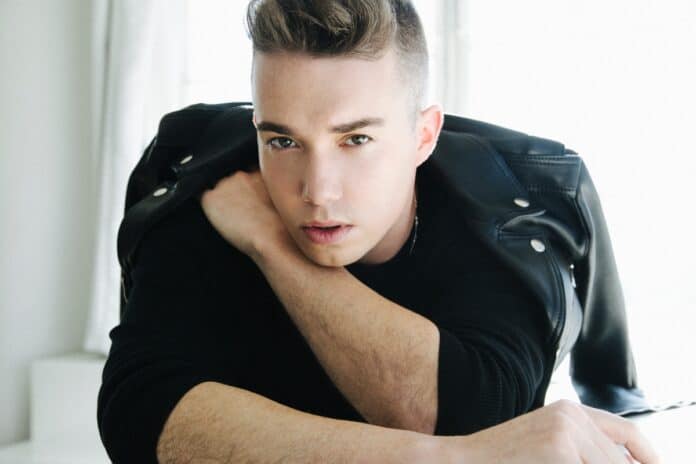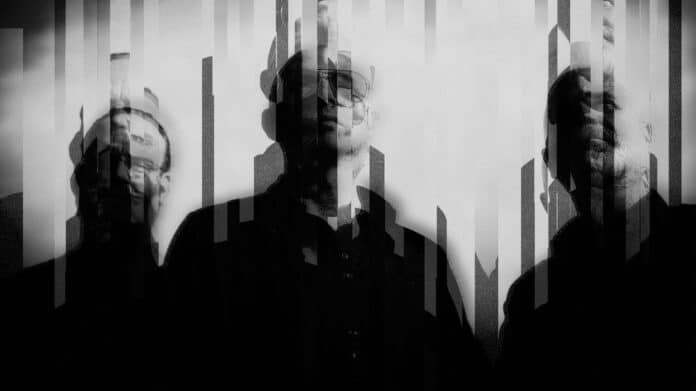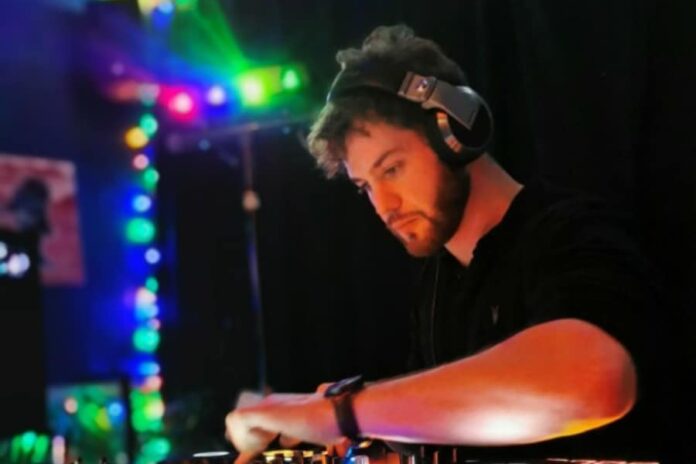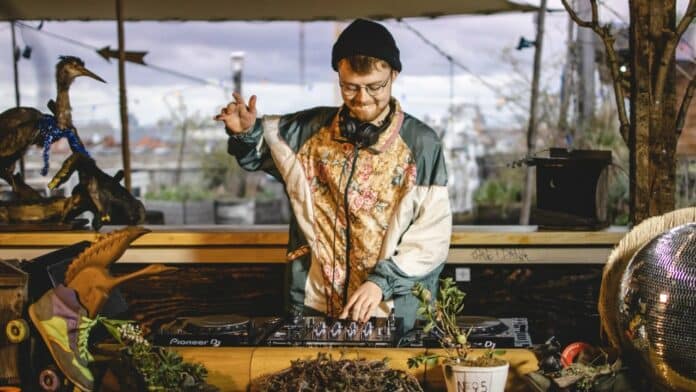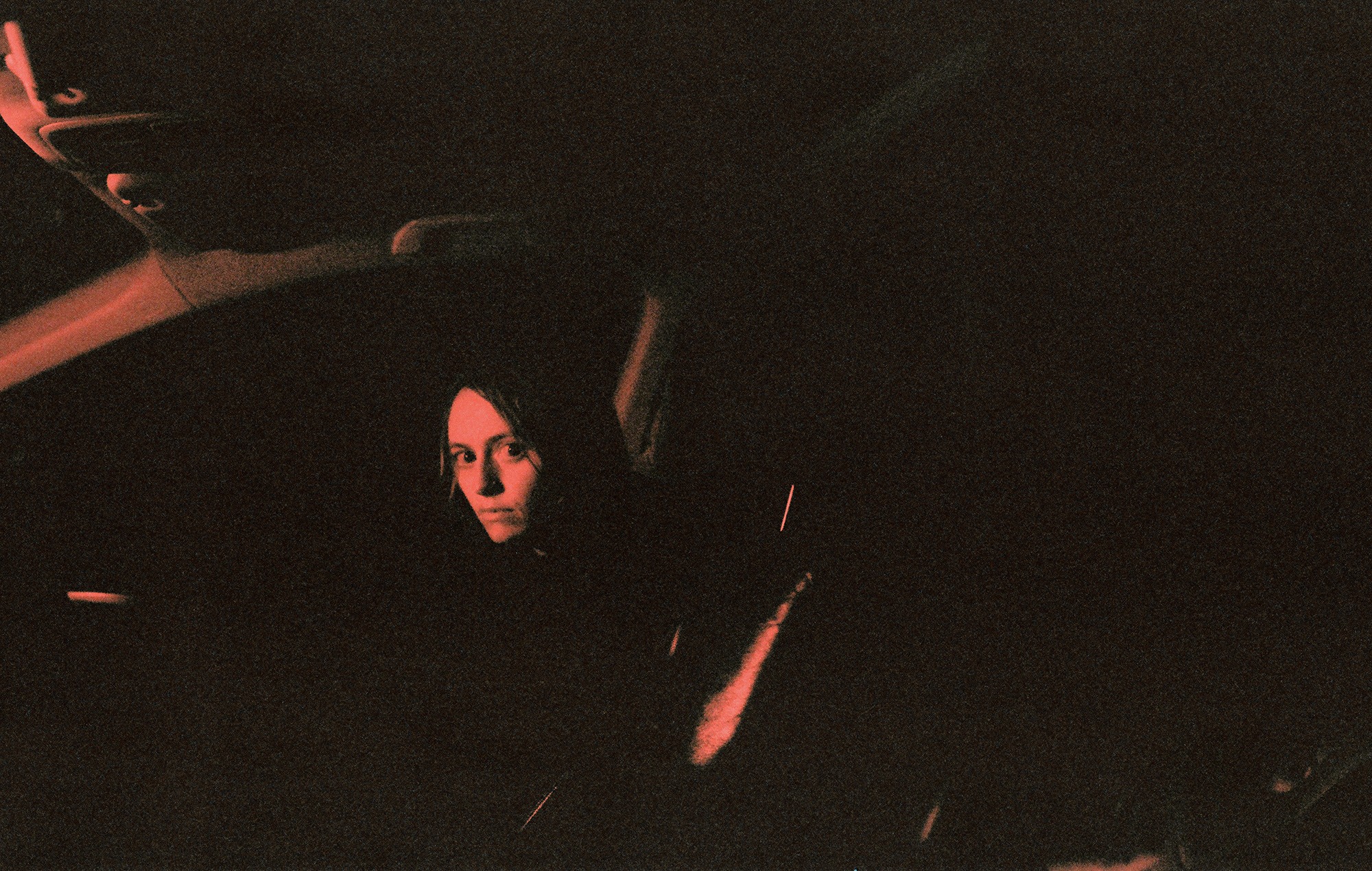
Skullcrusher: LA’s rising alt-folk star seeks shelter from the storm
There is an intriguing juxtaposition of terror and beauty to be found within the music of Skullcrusher. The LA-based singer-songwriter (aka Helen Ballentine) – whose macabre stage name is a complete antithesis of the “quiet, soft, and small” person she describes herself as – dreams up richly textured alt-folk numbers that speak to how fraught and difficult it can be to express vulnerability to lovers, friends, and strangers.
After finding a home at cult label Secretly Canadian in early 2020, Ballentine’s self-titled debut EP landed in July that year and saw her sweep glowing reviews across the board, with NME comparing the “unnervingly textured virtuosity” of the collection to that of her childhood hero, Nick Drake. Its five-track follow-up, the ethereal ‘Storm In Summer’, which arrived last week (April 6), was written in the months that followed the release of its predecessor, as the New York native began to unpack the tension she felt as listeners and critics poured over her first EP.
“These songs are all sort of tied together to this strange period in my life,” she explains to NME over Zoom. “When I was writing ‘Storm In Summer’, I would take these really long walks, and it would start pouring with rain and I’d get caught in thunderstorms. I was having these really big, emotional moments that reflected the stuff that I was working through.”
As she unveils ‘Storm In Summer’ to the world, we checked in with Ballentine to discuss her musical heroes, overcoming confidence issues, and her previous flirtations with electronic music.
Did the positive response to your self-titled debut EP make ‘Storm In Summer’ a far more nerve-wracking project to produce?
“To an extent. I think that I still have the ability to write something without thinking too much about what other people are going to think about it. If you’re journaling, you’re not really planning to read it back to anyone else, so your writing has that private quality – something which I think the first EP had, as I didn’t know if people were going to hear it.
“However, I have definitely had to get used to having a lot of people listening to my songs and having different thoughts about them, so I have doubted myself at times. Lyrically, maybe some of my songs aren’t exactly what I have meant to say, but that’s OK, too. Though I don’t know if I’ll ever totally get to the point where I don’t care what others think.”
Have you previously struggled with self-doubt, or was that feeling unique to the creative process of this EP?
“I think it’s something that’s very common in my life. I’m often in situations where I’m ready to share something and then later on, I will look back and be like: ‘Oh, did I say the wrong thing? Or was I too intense?’. And I felt that with my first EP; I thought I was so ready to put myself out there and share some really private things, and then afterwards, I was like: ‘Woah, that was a lot!’. I think it’s more about the anxiety that comes with sharing, but you just kind of learn to accept that, and ‘Storm In Summer’ was a time of exploring this process. Creating this EP was about understanding that a lot of really positive things come from sharing.”
‘A Song For Nick Drake’ is a beautiful ode to the late singer-songwriter – who else inspired you musically growing up?
“I mean, I have always felt so close to Nick as a person. I think that experience of listening to someone’s music and feeling close to the artist is something I’ve been thinking a lot about recently, as I am now the one releasing music. It often makes me feel overwhelmed and scared in a certain way, in how music can transcend and allow two people to feel very close.
“Elsewhere, early on, it was all Joni Mitchell, but I was also very into Beck, Madonna, and Coldplay. I then progressed onto Radiohead and My Bloody Valentine, before fixating on Boards Of Canada and Aphex Twin when I first started getting into electronic music.”
At one point, you briefly drifted into the electronic territory yourself and learned to DJ. What led to the decision to move back to an acoustic sound?
“To be honest, I was never really a DJ! But in college, I was learning how to work with electronic music; my close friend, who is also a music producer, brought me into that world a little bit. I love a lot of ambient and techno stuff, and I think it all relates in one way or another to the music I make now.
“When I’m writing songs on the guitar, I think my interest is in creating a space for the song to live in, and that comes from a lot of the electronic music I listened to at the time; it is so physical in the sense that you’re either dancing to it, or you’re in a space with a bunch of people listening to it. And I think that idea is really important, where it’s not just about listening to me sing. To me, it’s about being in the song, and that’s something I’ll explore as I get better at producing.”

“I can’t wait for people to be able to rock out a little bit more”
You also attended songwriting classes at college. What did you take away from that experience?
“I didn’t like being told that I had to learn how to do songwriting – that just felt unnatural to me! Since I started Skullcrusher, I feel like I have learned that I’m very slow at writing songs, and it takes me a long time to get there. But with this class, we had to write a song every week. Oh my God, it was really hard. I don’t remember a single song that I wrote.”
The title track of this EP sounds more confident and expansive than anything you’ve previously released. How did the approach to production differ this time around?
“I think the dynamics of this EP reveal a little bit more of the intensity that I know lives within me. A lot of what the Skullcrusher project is about is talking about how these darker, more intense and aggressive feelings can exist within a smaller sort of being like me. When I’m getting to know someone, I’m very quiet – so you wouldn’t necessarily think that I’m going to be an intense person. So I think that, for me, this EP feels like I am starting to emerge a little bit more clearly. Ultimately, I’m really interested in producing songs that have these softer, more ambient and textured parts, but then they later burst out with aggression, and the production here really lends itself to that.”
Your partner [producer and multi-instrumentalist Noah Weinman] offers backing vocals and plays the banjo on a handful of the tracks. What does it mean to you for him to be so heavily involved in this project?
“This project really grew from our close relationship. A few years ago, he was one of the first people I met in LA who was pursuing music, and, like me, was trying to make it work. Speaking to him so early on really made me want to go ahead with music. And I just think that we work really well together when we’re producing songs; we just don’t have to think about it all too much. I feel really comfortable bouncing ideas off of him, and we can just sit for a whole day trying out different guitar and vocal parts. He makes what is already such an enjoyable process even better.”
How do you hope this new EP will make people feel?
“I want people to really be willing to listen to what I have to say. I also want to feel close to people after this EP because I just feel like I’m sharing a layer of myself that wasn’t clear and out there before, so people can learn more about me. And then I think, on a lighter level, I’m just excited for people to hear the sonic progression from my previous EP. I can’t wait for people to be able to rock out a little bit more whenever they listen to my music, rather than just being like: ‘Oh, this is so sad and soft and quiet!’. People will finally discover that they can actually headbang to my music.”
Skullcrusher’s ‘Storm In Summer’ EP is out now

